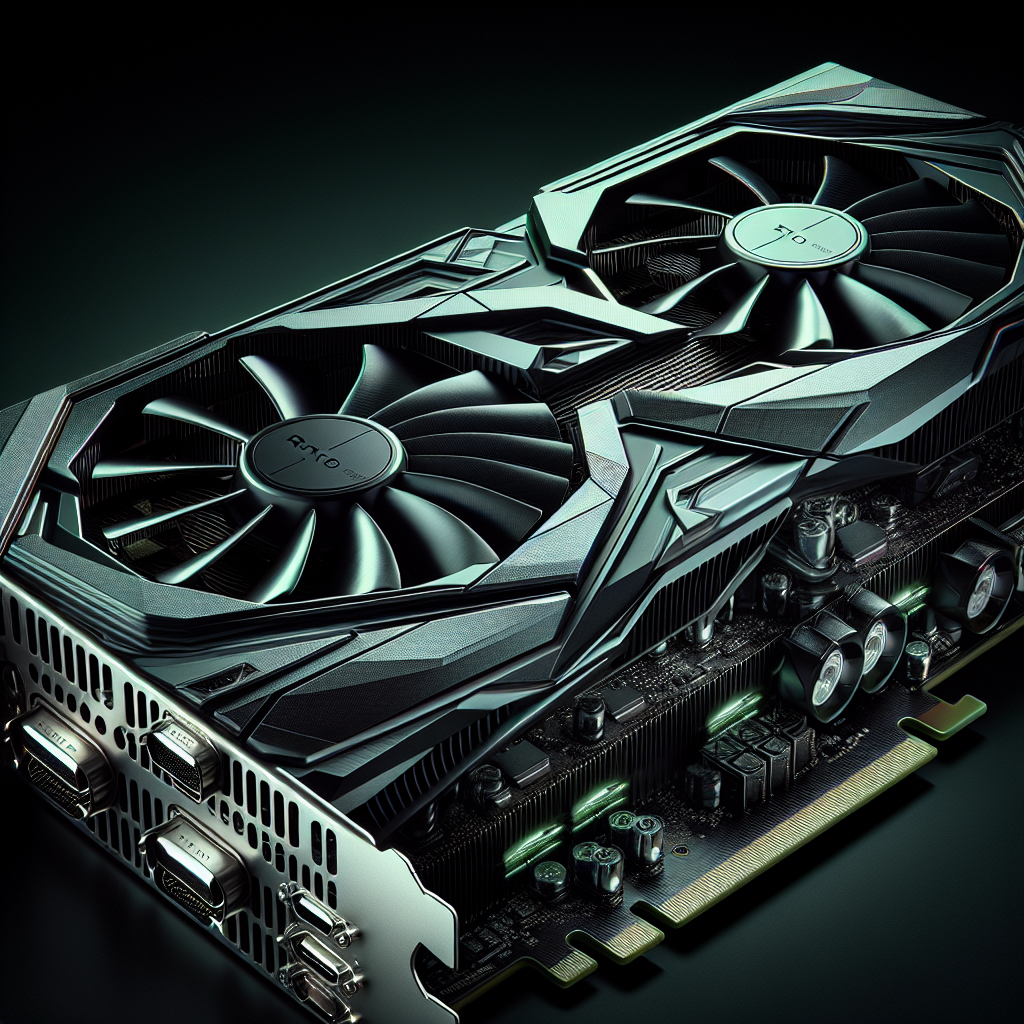Nvidia's RTX 480 Super Launch: A Mixed Bag of Expectations and Reality
In a digital age where the launch of a new graphics card can cause more buzz than some blockbuster movies, Nvidia's release of the RTX 480 Super has certainly stirred the pot, but perhaps not in the way they had hoped. Early this week, Nvidia took a step back to delay RTX 480 Super reviews by an additional day, citing shipping issues as the culprit for the hiccup. Yet, whispers from the tech community suggest a different story. Let's dive into the intricate dance of expectations, reality, and the ever-pulsating heart of the tech market as it responds to Nvidia's latest offering.
The Pre-Launch Turbulence
Contrary to Nvidia's claims, insiders from multiple reputable review platforms have whispered that there were, in fact, no delays in receiving RTX 480 Super units. If anything, these units arrived earlier than expected, sparking a wildfire of speculation. Was Nvidia's delay a strategic move to better position the RTX 480 Super against its rivals, or merely a miscommunication? One can only speculate.
A Clash of Titans: Nvidia vs. AMD
Amidst the pre-launch whispers, the performance of the RTX 480 Super itself has been a hot topic. Initial reviews suggest a performance that, at its worst, shows no improvement over its predecessor, the RTX 4080, and at best, still falls short against AMD's 7900 XTX in rasterization tests. Even more, the ray tracing enhancements, though present, were not enough to convince skeptics of its superiority.
Despite these critiques, Nvidia's RTX 480 Super saw a surprisingly strong number of pre-orders. This suggests a loyal consumer base willing to bet on Nvidia's latest card, potentially spurred by the disappointing sales and reviews of the previous 4070 TI Super. It raises the question: Did Nvidia anticipate the mixed reviews and adjust their strategy to protect initial sales?
https://www.techradar.com/news/nvidia-rtx-480-super
The First Day Sales: A Closer Look
Sources from within the retail sector present a kaleidoscope of outcomes for the RTX 480 Super's first day on the market. One major online retailer reported selling out quickly, but with limited stock, the success feels somewhat hollow. Meanwhile, a key non-US retailer suggested a strong initial sales burst that quickly plateaued. This mixed reception hints at the complex interplay between consumer anticipation and the reality of product performance.
In the US, feedback varied further, with one retailer describing day one sales as "terrible," while another reported "significantly better" sales compared to the RTX 470 TI Super. These disparate experiences paint a picture of a launch that, while not disastrous, failed to match the hyped expectations.
The Silent Battle: Price Drops and Consumer Loyalty
In the wake of these mixed results, the role of pricing strategies becomes ever more critical. If AMD were to lower the price of its 7900 XTX, it could potentially sway undecided consumers. Nvidia's RTX 480 Super, priced at $1,000, exists in a delicate balance. It may sell well among Nvidia loyalists unwilling to switch camps, but broader market success will likely hinge on competitive pricing and perceived value.
Future Implications and the Console Wars
As we ponder the RTX 480 Super's place in the grand scheme, it's impossible to ignore the looming presence of the next-gen console wars. Rumors of a PlayStation 5 Pro and a new handheld device capable of playing PS5 titles suggest a shifting landscape where traditional graphics cards are but one piece of a larger puzzle. Nvidia's strategy with the RTX 480 Super, therefore, must be evaluated not just in the context of the current GPU market, but within the evolving ecosystem of gaming and tech hardware.
https://www.playstation.com/en-us/
Wrapping Up: Nvidia's RTX 480 Super, A Story Still Unfolding
Nvidia's RTX 480 Super launch has certainly been a rollercoaster. While the pre-order numbers suggest a strong undercurrent of loyalty and anticipation, the mixed first-day sales and critical reviews paint a more complex picture. In the ever-turbulent sea of the tech market, Nvidia's latest offering is a testament to the challenging balance between innovation, consumer expectations, and the cold hard numbers of sales and reviews.
As the dust settles and more comprehensive data emerges, it will be fascinating to see how the RTX 480 Super fits into Nvidia's legacy. Will it be remembered as a stepping stone, a slight misstep, or perhaps, as a dark horse that slowly but surely proves its worth? Only time will tell, but one thing is for sure: in the high-stakes world of graphics technology, the game is always changing, and the players must adapt or risk being left behind.
Related News
- NVIDIA's RTX 4070 TI Super: A Disappointing Performance or Strategy Gone Awry?
- Nvidia's RTX 4070 Super Launch: A Lesson in Gamers' Expectations and Vram Economics
- Navigating the Supercharged Terrain of NVIDIA's Latest RTX 4000 Series
- NVIDIA's Super Series: The Disruptive Entry in the GPU Colosseum
- The Evolving Landscape of GPU Technology: A Zesty Take on Recent Developments
